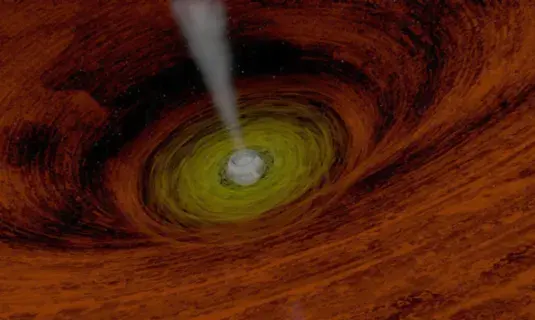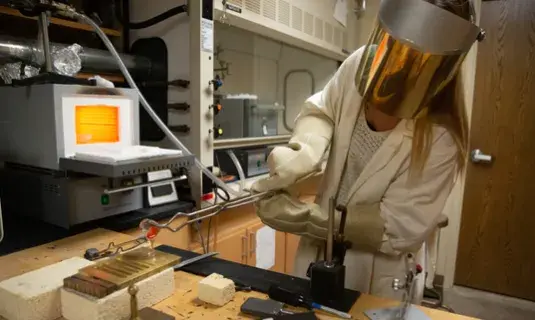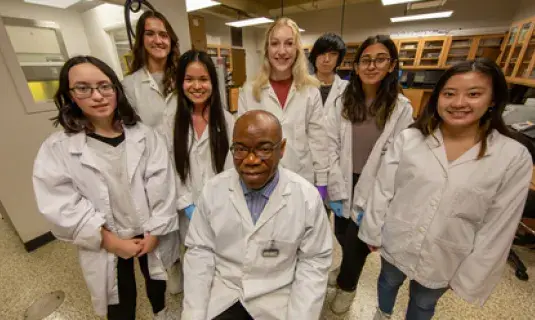
Research
The Department of Physics at Creighton University has faculty members who lead research in a variety of areas. Undergraduate and Graduate students are paid or receive course credit for doing research, and they often author research papers in peer-reviewed journals and present their work at conferences.
These research experiences expand students' course work in diverse specialties from Astrophysics and Cosmology, to Biological and Medical Physics, High-Energy Physics, Condensed-Matter Physics, and Ultracold Atomic Physics. Our research is externally funded by major research grants from the National Science Foundation and Department of Energy. Come be a part of the amazing research being done in Creighton's Department of Physics!
Research Skills
Physics research is a great way to learn and gain expertise in high-tech, transferable skills.
Computer Programming: Computer programming plays a huge role in modern science. Students learn a variety of programming ecosystems through research and coursework, including Matlab, Mathematica, Python, and Multiphysics for scientific programming and simulation; and LabView and Arduino programming for controlling experiments and hardware.
Machine Shop: The physics department has a fully-equipped machine shop operated by Brad Walters. With his guidance, students build parts for their experiments, such as optical devices, vacuum chambers, and detectors.
Electronics: In many of the experimental research groups, students use digital and analog electronics for controlling experiments or designing measurement tools. A one-credit electronics laboratory course introduces students to these high-tech skills.
Creighton University Physics Research Areas

Astrophysics

Physics Education
Contact Us
Department Office
Hixson-Lied Science Building, Room G79
Phone: 402.280.2835
Fax: 402.280.2140
Mailing Address
Department of Physics
2500 California Plaza
Omaha NE 68178
Department Chair
Dr. Gintaras Duda
402.280.3072
gkduda@creighton.edu
Graduate Program Director
Dr. Michael Nichols
402.280.2159
mnichols@creighton.edu









